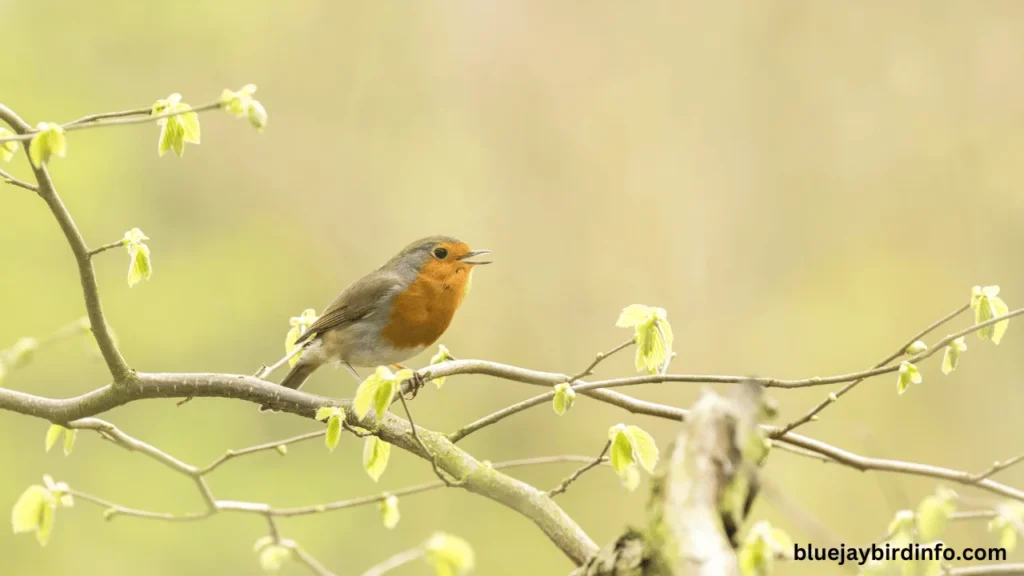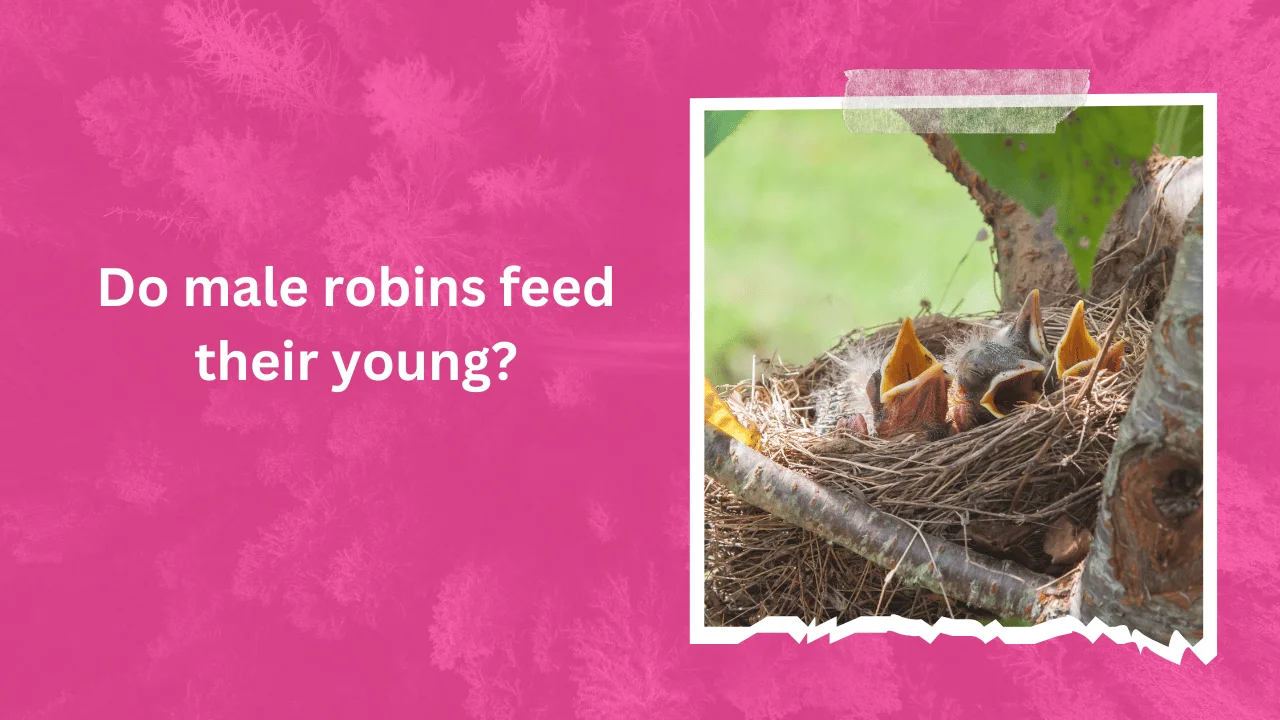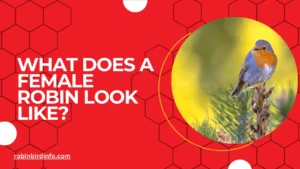Peeking out your window, you witness a heartwarming scene:
a fluffy Robin chick chirping frantically, and a parent bird patiently stuffing a juicy worm into its gaping beak. But wait a minute, isn’t that the male Robin? Unlike some species where childcare falls solely on the female, Robins embrace a more egalitarian approach to raising their young.
This might come as a surprise. After all, the image of a busy mom tirelessly tending to her brood is a common trope in nature documentaries. But Robins challenge this stereotype, showcasing a remarkable level of parental teamwork.
So, the next time you see a Robin family flitting around your backyard, you might be witnessing a beautiful display of shared responsibility, not just a solo parenting act. Now, let’s delve deeper into the fascinating world of Robin parenthood and explore the vital role male Robins play in raising their precious chicks.
Contents
- 1 Nest Building and Territory Defense
- 2 Incubation and Parental Care
- 3 Fledging and Post-Fledging Care
- 4 The Importance of Male Parental Care
- 5 Conservation Implications
- 6 Conclusion
- 7 FAQ’s
- 7.0.1 Do all male Robins help raise their young?
- 7.0.2 How long do male Robins help care for their young?
- 7.0.3 What are the benefits of male parental care for Robin chicks?
- 7.0.4 Can male Robins raise young on their own?
- 7.0.5 How can I attract Robins to my yard?
- 7.0.6 How can I protect Robin nests from predators?
Nest Building and Territory Defense
The male Robin plays a crucial role in establishing and defending the nesting territory. He actively seeks out suitable nesting sites, often in trees, shrubs, or on window ledges. Once a suitable site is found, the male Robin will vigorously defend his territory from intruders, using song, posturing, and even physical aggression to ward off rivals.
While the female Robin typically takes the lead in nest construction, the male may assist by gathering nesting materials or helping to transport them to the nest site.
Incubation and Parental Care
Once the nest is built and the eggs are laid, both male and female Robins share the responsibility of incubating the eggs. They take turns sitting on the eggs to keep them warm and protect them from predators.
Both parents also work together to feed the nestlings. They bring a variety of insects, including worms, caterpillars, and beetles, to the nest. The parents regurgitate the food into the mouths of the hungry chicks.
Fledging and Post-Fledging Care
After about two weeks, the Robin chicks are ready to fledge. Both parents continue to feed and protect the fledglings for a short period after they leave the nest.
The male Robin plays a vital role in post-fledging care. He may continue to provide food and protection to the young birds until they are fully independent.
The Importance of Male Parental Care
Male parental care is crucial for the survival and success of Robin offspring. It helps to ensure that the young birds are well-fed, protected from predators, and have a higher chance of surviving to adulthood.
Male parental care can also influence mate choice and reproductive success. Females may prefer males who are good providers, and this can lead to increased mating opportunities and reproductive success for the male.
Shared parental responsibilities can strengthen the social bond between the male and female Robin, leading to more stable pair bonds and increased reproductive success.
Conservation Implications

Habitat loss is a significant threat to Robin populations. The loss of forests and woodlands can reduce the availability of suitable nesting and foraging sites.
The use of pesticides can also negatively impact Robin populations by reducing the availability of insects, which are a crucial food source for both adult and young Robins.
Climate change can alter the timing of breeding seasons and the availability of food resources, potentially impacting Robin populations.
Conclusion
Male Robins play a vital role in raising their young, from nest building and incubation to feeding and protecting their offspring. By understanding the importance of male parental care, we can appreciate the complex social behaviors of these fascinating birds.
It’s important to protect Robin habitats and minimize human impact on their breeding success. By doing so, we can ensure the continued survival of these beloved birds.
FAQ’s
Do all male Robins help raise their young?
Yes, most male Robins actively participate in raising their young. They share the responsibilities of incubating eggs, feeding nestlings, and protecting the nest.
How long do male Robins help care for their young?
Male Robins typically continue to care for their young for several weeks after they fledge. They may provide food and protection until the young birds are able to fend for themselves.
What are the benefits of male parental care for Robin chicks?
Male parental care can significantly increase the survival rate of Robin chicks. By sharing the workload of feeding and protecting the young, both parents can provide better care and increase the chances of their offspring surviving.
Can male Robins raise young on their own?
While it’s possible for a male Robin to raise young on his own, it’s more common for both parents to work together. However, in some cases, a single parent may be able to successfully raise a brood of chicks.
How can I attract Robins to my yard?
To attract Robins to your yard, provide a variety of food sources, such as birdseed, mealworms, and fresh fruit. You can also create a bird-friendly environment by planting native plants, offering clean water sources, and providing nesting sites.
How can I protect Robin nests from predators?
To protect Robin nests from predators, you can install physical barriers, such as bird netting or cages. Additionally, you can deter predators by using scare tactics, like reflective tape or scarecrows.








